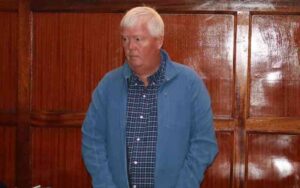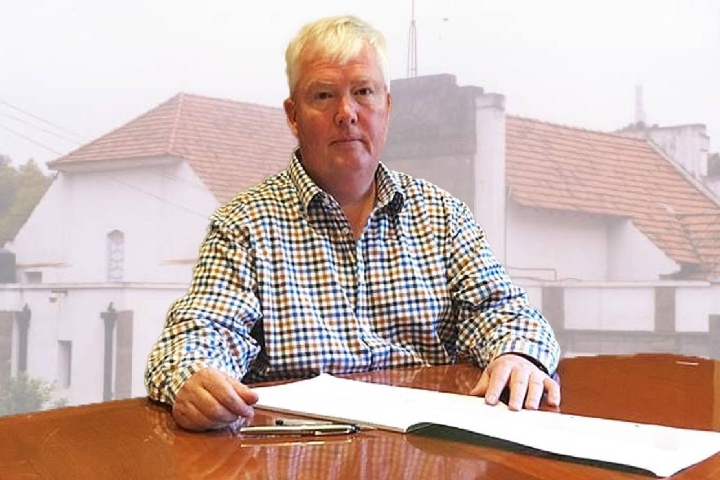City lawyer Guy Spencer Elms is facing one of the most serious challenges of his career after a Nairobi court ordered him to take plea in a high-stakes Sh100 million land dispute in Karen.
The charges against him include forgery, uttering false documents, and attempting to fraudulently acquire property that belonged to the late Briton Roger Robson.
This case has put him at the center of national attention, especially after reports of previous attempts to dodge legal proceedings.
The dispute involves businesswoman Agnes Kagure, who claims rightful ownership of the property.
The Attorney General and the Director of Public Prosecutions have pushed for strict accountability after Spencer repeatedly ignored summons to appear in court.
His absence led to a warrant for his arrest, though he cited ongoing hospital treatment in London as the reason for missing the hearings.
Despite this, the court moved forward, emphasizing that legal processes cannot be delayed by such excuses.
Spencer has previously faced allegations over multiple high-profile estates including the Msambeni land saga.
He is known in the media as “Forgery GrandMaster,” a nickname trending in Kenya due to his alleged involvement in forging wills, creating false powers of attorney, and attempting to seize valuable properties illegally.
The current Karen land dispute is just one among many controversies, with past cases including the estate of the late billionaire Pritam Singh Panesar and a 53-acre beach estate in Msambweni.

Guy Spenser Elms, a British prominent lawyer
[Courtesy]
Legal experts and watchdogs have raised concerns over the pattern of alleged misconduct by Spencer. Many point out that such repeated accusations suggest a deliberate attempt to manipulate inheritance laws and exploit gaps in property verification processes.
His actions have prompted a wider debate on the need to reform the legal and land registration system in Kenya, especially to prevent influential lawyers from allegedly abusing their positions.
The public has also reacted strongly, with social media campaigns like #EndLandFraudKE calling for Spencer’s arrest and prosecution.
Critics argue that allowing him to continue practicing law without facing consequences could set a dangerous precedent for property disputes in the country.
The ongoing case is likely to attract further scrutiny, particularly because it involves both a foreign estate and high-value property in Karen, an area known for its upscale real estate.
The court’s decision to move forward with the plea marks a major blow to Spencer’s legal maneuvering. While he remains free for now, the implications of the charges are serious and could define the future of his career.
Authorities have made it clear that no one, regardless of status, is above the law, and this case could serve as a critical example in Kenya’s fight against property-related fraud and forgery.
This confrontation puts Spencer in a tight spot, forcing him to respond in court and potentially face the full weight of legal accountability for actions he allegedly carried out over the years.
The outcome of this case will be closely watched by legal practitioners, property owners, and the public who have grown wary of repeated high-profile land scandals in the country.



